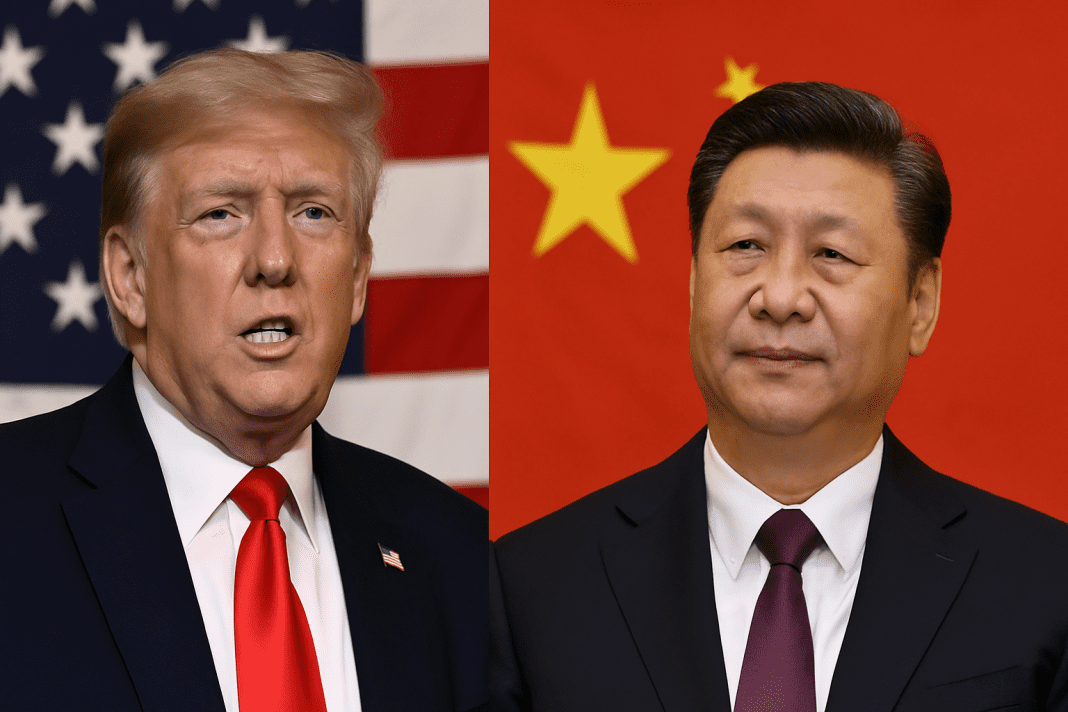US President Donald Trump has sharply criticized India for continuing to buy oil from Russia. In response, he doubled tariffs on Indian goods to 50%. He also called India and Russia “dead economies,” a remark that sparked strong reactions in global diplomatic circles. Meanwhile, Chinese President Xi Jinping has remained notably silent, despite China importing even more Russian oil than India — a contrast that has raised questions about the differing treatment by the US.
Xi Stays Silent as Trump Slams India with Tariffs
This move is a setback for Indian Prime Minister Narendra Modi, who once had a close relationship with Trump. The president is clearly frustrated by India’s ties to Russia and its involvement in the BRICS group, which includes Brazil, Russia, India, China, and South Africa.
What’s surprising is that China, under President Xi Jinping, has imported even more Russian oil than India — yet Trump has not targeted Beijing in the same way. Xi has remained silent, while India faces public criticism.
Aggressive Tariffs Fuel BRICS’s Strategic Push Toward Dollar-Free Trade
Experts suggest the US may be avoiding confrontation with China due to its economic power. Xi’s quiet approach may reflect a calculated strategy, using China’s trade strength to avoid direct conflict while still benefiting from Russian energy.
Xi’s Quiet Confidence Backed by Rare Earth Power
While Modi is under public fire, Xi is keeping a low profile. As is tradition during summer, Xi is likely at the Beidaihe resort, where top Chinese officials meet privately to plan future policies. Even though he hasn’t made any public statements, Xi’s position appears strong — strengthened by China’s economic power.
Xi knows China has leverage. One major advantage is China’s near-total control over rare earth magnets. These are key materials used in smartphones, electric vehicles, and even military hardware. In June, China exported 353 tons of these magnets to the US, a huge jump from only 46 tons in May. Still, American officials say they are only “about halfway there” in restoring supply levels, showing China’s grip on the market.
Trump Targets BRICS: 10% Tariff Declared on Countries Backing Bloc
The trade numbers show how much influence Xi and China hold. In 2024, China sold $525 billion worth of goods to the US, but bought only $164 billion in return. Many of these exports are in product areas where China supplies over 50% of total US imports. Meanwhile, the US holds that kind of export power in only 12% of the goods it sends to China.
Trump’s team has taken some action against China this year. The US placed restrictions on chip-design software, jet engines, and ethane — a chemical used to make plastic. But Trump’s former adviser, Peter Navarro, warned that tariffs on Chinese goods are already over 50%. “We don’t want to get to a point where we actually hurt ourselves,” he said. Xi is likely aware of this limitation and is using it to his advantage.
Xi Watches as US-China Tech and Trade Battles Grow
Tensions are rising not just in trade but also in tech. Two Chinese nationals were recently arrested in the US for smuggling Nvidia chips to China. In Taiwan, six people were held for stealing secrets from chipmaker TSMC. In Beijing, regulators summoned Nvidia staff over concerns with the H20 chip.
Though the H20 isn’t China’s most advanced tech focus, experts see Beijing’s move as political. Xi Jinping’s government is signaling that China won’t blindly accept US tech rules. As George Chen from The Asia Group put it: “China is a buyer, but it won’t be a blind buyer.” Xi seems to be warning Chinese firms not to over-rely on US technology.
✈️ Invisible dragon? China’s J-20 flies undetected through Tsushima Strait, rattles U.S. and Japan
Xi’s broader AI strategy also continues. China is building massive data centers, many now powered by renewable energy. While the US still leads in talent, Xi’s push since 2008 has brought thousands of scientists back to China, mixing ambition with nationalism.
Meanwhile, inside China, officials are battling a chikungunya virus outbreak in Guangdong. Xi hasn’t commented, but the response resembles earlier Covid controls — mass disinfection, symptom tracking, and strict community action. Online jokes reflect growing anxiety: “Not sure if mosquitoes will die, but I might from the chemicals.”

